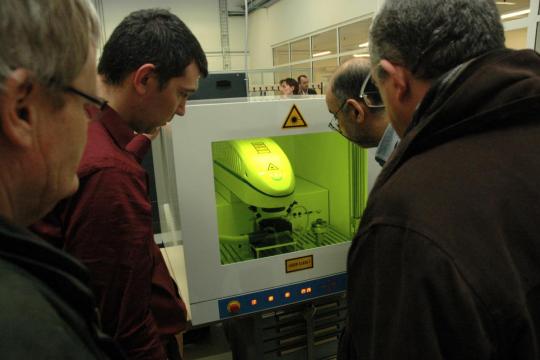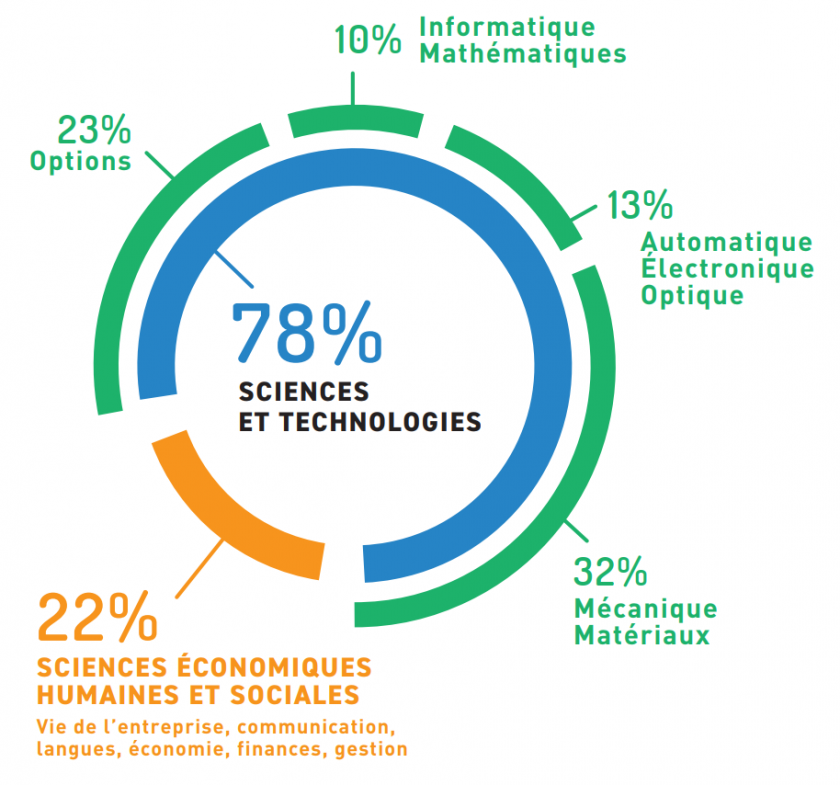Anchored in reality

SUPMICROTECH-ENSMM provides training directly in line with the recruiting companies’ needs and requirements. Graduates benefit from sound foundations for the future.
One degree, three possibilities
Conventional initial training
SUPMICROTECH-ENSMM recruits at baccalaureate + 2 years level. Access to the school is usually gained via the Concours Communs Polytechniques (Engineering Schools Common Entrance Exams) after the engineering schools preparatory course, but it is also possible for holders of certain diplomas. The school awards its degree after a three-year course, giving the title of Master’s.
Initial training via an apprenticeship
Access to this type of training is based on your academic record and an interview, along with a company agreement. There are two specialities available for students: Mechanics or Microtechnologies and Design. Recruited after a DUT or BTS diploma, apprentices benefit from an apprenticeship contract. They will alternate 2/3 of their time in a company and 1/3 at the school, over three years. The training benefits from the ITII Franche-Comté label.
Continuous training
Access is based on your academic record and an interview, followed by a refresher course, before joining part of the initial training course.
All-encompassing comprehensive trainingune
- 78% of the scientific and technical training is focused on mechanical and mechatronic systems, microsystems and microtechnologies engineering. It provides access to a large number of buoyant industrial sectors (automotive, aeronautics, biomedical, telecommunications, energy, etc.).
- 22% of the training concerns economics and social sciences. These disciplines give the engineering students the managerial skills they will find essential in their future careers: human resources management and ethics, social legislation, logistics, financial management, industrial property, sustainable development, marketing, communication, etc.
Teaching that promotes responsibility
The course teaching makes it possible to develop self-reliance and a sense of responsibility through a host of experiences: collective interdisciplinary projects, engineering and innovation projects, tutorials and practicals all contribute to facilitating integration in working life...
Languages at the forefront
The training, combined with fluency in two foreign languages (including English), allows the future graduates to be immediately operational in the company. B2 certification level in English is required to obtain a degree.
International mobility
An international mobility lasting at least three months must be completed in the form of study semesters, industrial internships or in the framework of a dual degree.
Customised training pathway
A number of possibilities allow the engineering students to customise their pathway: stay abroad, dual degree, and partnerships with the schools in the network. The fully semester-based and modular training courses comply with the European Bachelor’s-Master’s-Doctorate standards and take the ECTS credits system into account, in particular enabling the students to give their training pathway an international focus.
Nine specialisation options
Starting from their third year the students can specialise in areas closely related to the key industrial sectors and major societal challenges, closely meeting the expectations and needs of businesses. The teaching is assessed to ensure it meets the students’ needs and there is a quality system in place to measure the effectiveness and relevance of the training.
The company, epicentre of the training
Immersion in a company, with three internships, is an integral part of the SUPMICROTECH-ENSMM students’ learning experience. This corresponds to one year in a company for the initial training, and to two years for the initial training via an apprenticeship. SUPMICROTECH-ENSMM fosters close relationships with all companies in the cutting edge sectors, which guarantees the students an internship placement in every sector of industry: aeronautics and space, automotive, armament, plastics processing, electronics industry, energy and oil industry, clock-making and luxury goods, biomedical industries.



